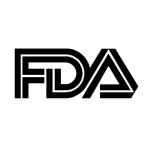by
Astrid Fiano, DOTmed News Writer | September 23, 2009

Recommendations for
study design
The Food and Drug Administration (FDA) has issued a draft guidance on the FDA's proposed recommendations for clinical study designs for surgical ablation devices for treatment of atrial fibrillation (AF). The draft guidance has been released for public comment. The recommendations address clinical studies for both new surgical ablation devices intended for treatment of AF, and legally marketed surgical ablation devices for seeking a new indication of treatment of AF.
Some of the recommendations for study design included in the draft guidance include:
--Randomized controlled trials (RCTs) for having the least burdensome means of developing valid scientific evidence. The potential advantages include the evaluation of device effectiveness and device safety and a sound basis for statistical inference.



Ad Statistics
Times Displayed: 3021
Times Visited: 33 Fast-moving cardiac structures have a big impact on imaging. Fujifilm’s SCENARIA View premium performance CT brings solutions to address motion in Coronary CTA while delivering unique dose saving and workflow increasing benefits.
--If a study departs from RCTs, the FDA recommends using rigorous methodology designed to reduce potential sources of bias and other confounders, and thoroughly explaining the scientific rationale of the design in the IDE submission.
--To the extent possible, the subjects in the study should have the same set of ablation lesions performed. Any deviations should be clearly documented in the case report forms.
--In the IDE application for a trial where the only purpose of the surgical procedure is ablation for treatment of AF, a sound scientific rationale in support of the hypothesis that the benefits of the AF ablation outweigh the risks of the surgical procedure should be provided.
--The study design should reflect the proposed intended use and indications for use of the ablation device, identifying factors that may affect the risk/benefit profile of the device, as example the type of AF treated, the surgical approach used, concomitant procedures, and relevant patient characteristics.
--The FDA recommends the study include patient populations where the proposed therapy is most likely to demonstrate benefit.
The FDA's guidance documents are not to establish legally enforceable responsibilities but rather review the FDA's recommendations on a topic unless there are specific regulatory or statutory requirements cited.
The FDA says any comments and suggestions regarding the draft guidance should be submitted within 90 days of its publication in the Federal Register. The full draft guidance and the means of submitting comments to the FDA may be accessed at:
http://www.fda.gov/MedicalDevices/DeviceRegulationandGuidance/GuidanceDocuments/ucm182016.htm
Back to HCB News

